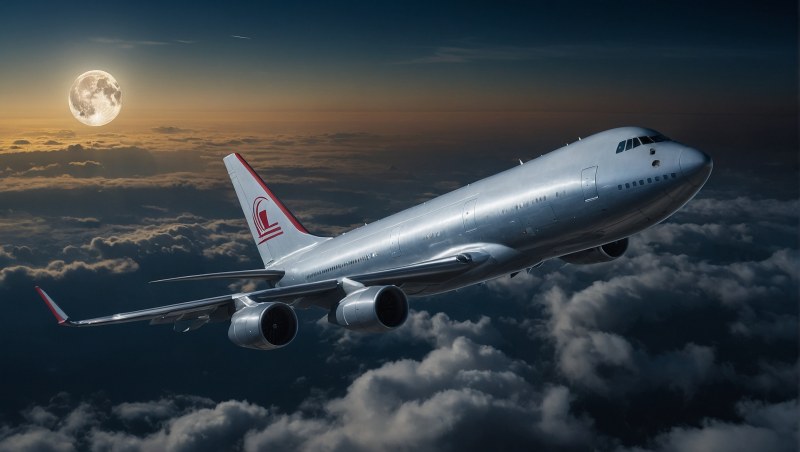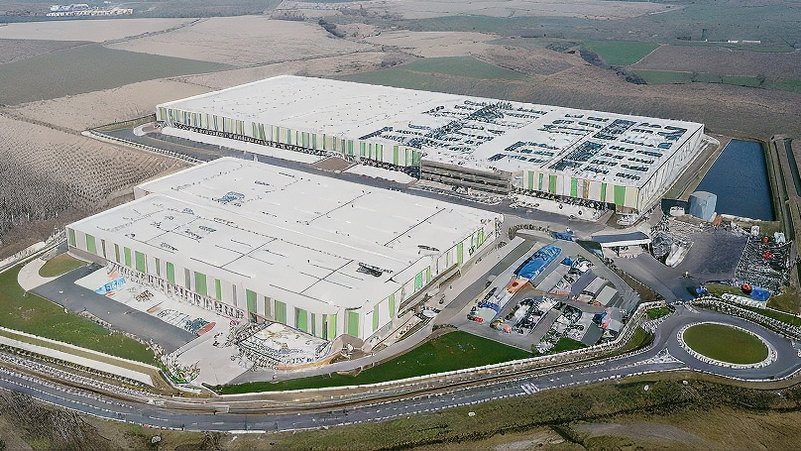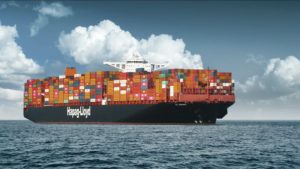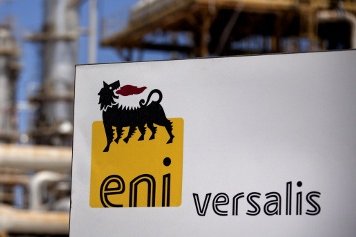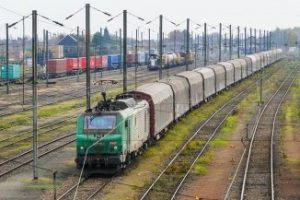Hapag-Lloyd has signed two contracts with Chinese shipyards for the construction of 24 container ships. The agreement includes the building of twelve vessels, each with a capacity of 16,800 TEU, by Yangzijiang Shipbuilding Group, while another twelve vessels, with a capacity of 9,200 TEU, will be built by New Times Shipbuilding Company. The larger vessels will be used to expand the capacity of existing services, while the smaller ones will replace older units reaching the end of their useful lives by the end of this decade.
The new ships will be equipped with dual-fuel, low-emission liquefied gas engines operating at high pressure and optimized for fuel efficiency. Furthermore, they will be capable of running on biomethane, enabling a reduction in CO2 emissions of up to 95% compared to conventional propulsion systems. The new vessels will also be ready to use ammonia as an alternative fuel. Deliveries are scheduled between 2027 and 2029, with a total capacity of 312,000 TEU and a total investment of approximately four billion dollars. Part of the investment, amounting to three billion dollars, has already been financed long-term.
"This investment is one of the most significant in Hapag-Lloyd's recent history and marks a key milestone for our company under the 2030 Strategy, which envisions sustainable growth through fleet modernization and decarbonization," said Rolf Habben Jansen, CEO of Hapag-Lloyd. "Operating a more efficient fleet will allow us to improve our competitive position and, with increased capacity, continue to offer our customers a high-quality global product."
Hapag-Lloyd is fully committed to achieving the Paris Agreement's 1.5-degree target. By 2030, the company aims to reduce the absolute greenhouse gas emissions of its fleet operations by around one-third compared to 2022, as part of the goal to achieve net zero emissions by 2045. This ambitious milestone will be made possible through investments in modern and efficient new vessels, reducing sailing speeds, modernizing the existing fleet, and adopting new propulsion technologies and alternative fuels, enabling customers to benefit from sustainable transport options.
On April 16, the German shipping company announced the conversion of five vessels to methanol-powered engines. Currently, Hapag-Lloyd operates a fleet of 287 container ships with a total transport capacity of 2.2 million TEU, managing the largest fleet under the German flag.




